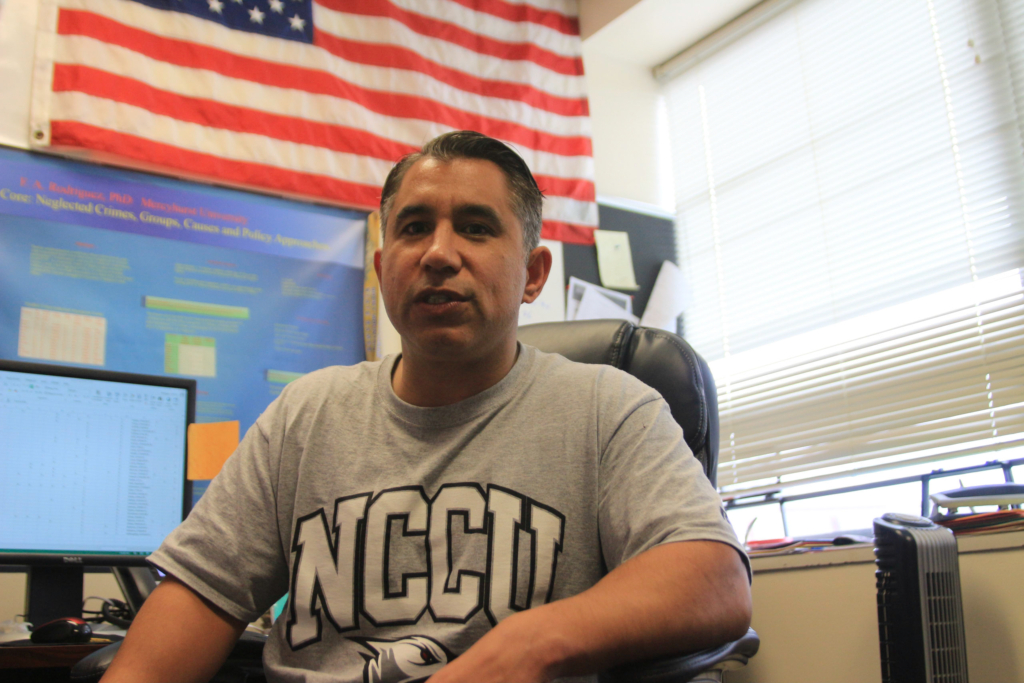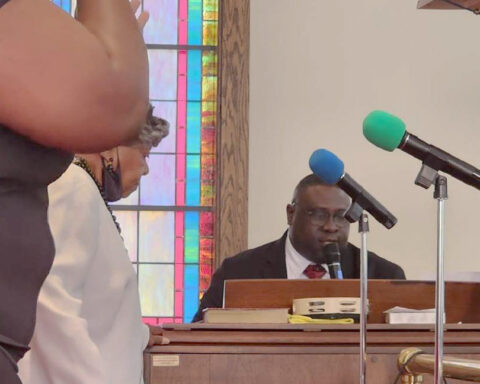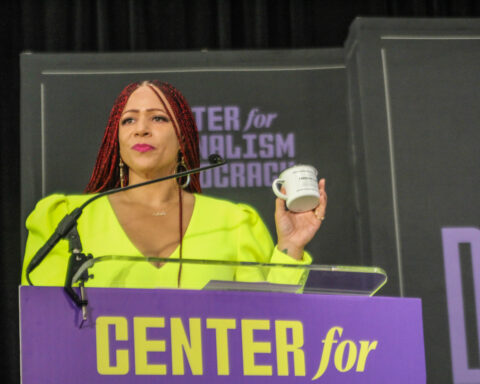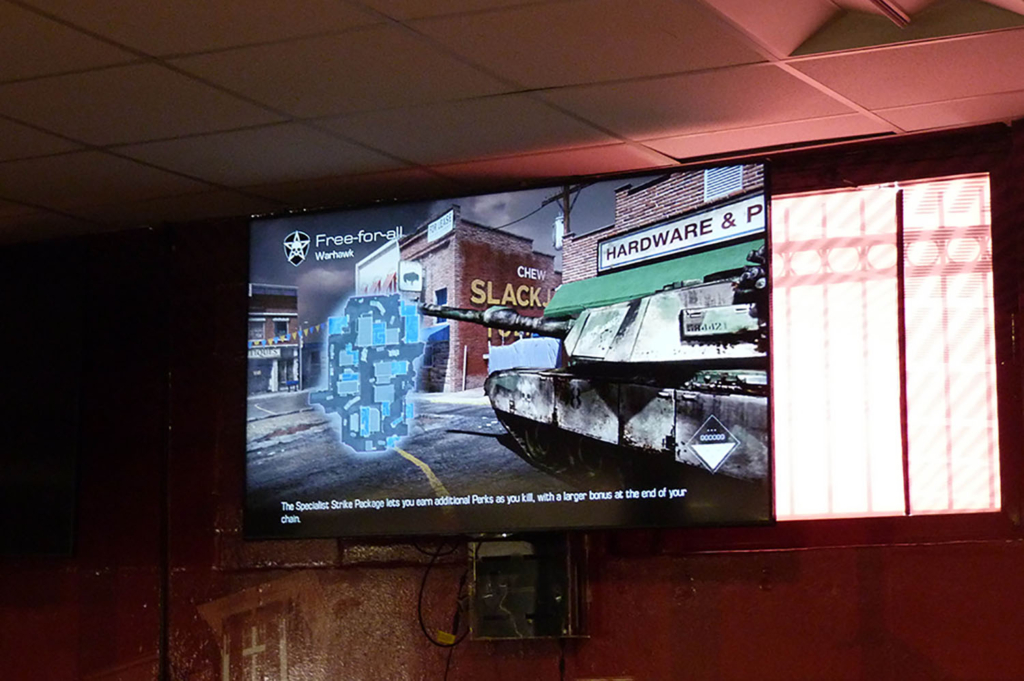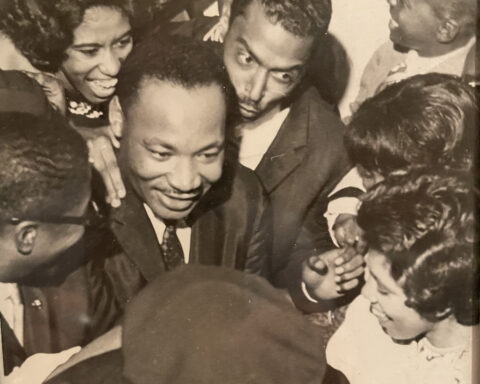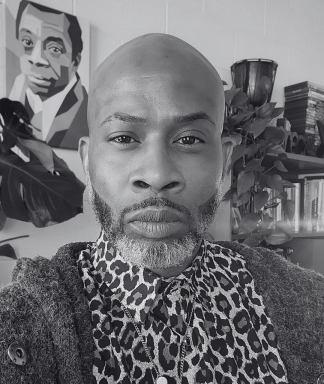Frank Rodriguez, a newly-arrived assistant professor at N.C. Central University’s Department of Criminal Justice, never expected to become a role model for others and youth.
He’s been a taxi driver, a kindergarten teacher, and apolice officer before coming to teach at NCCU. In addition to his academic background, he has a wealth of “real world” experience.
He’s a third-generation Mexican American who grew up in Donna, a south Texas town of about 15,000 near the border with Mexico.
In the early days, his family moved between Texas and Colorado as migrant farm workers, never losing sight of the big picture despite experiencing hardship.
“When we came back to Texas, we lived in a shack made of wood and dirt floors with no indoor plumbing. My dad and my mom both decided in their early 20s, that there’s nothing bright in their future if they didn’t go to school,” said Rodriguez.
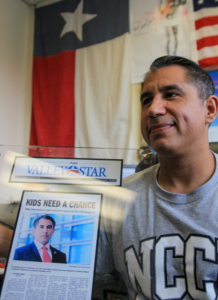
They stressed to Rodriguez that getting an education was key. Eventually, his father became a 6th grade English teacher while his mother worked at Montessori’s Children’s Cottage.
Rodriguez wanted to work in juvenile justice, helping rehabilitate at-risk youth. This inspired his guiding principle “kids need a chance.”
To continue this principle, he attended Prairie View A&M for his Ph.D. in juvenile justice.
His dissertation, “Unaccompanied Latino Youth on the United States-Mexico Border: A Qualitative Study,” examined the life experiences and hardships faced by 12 undocumented Latino youth who had crossed the border without their parents.
One Latino youth he interviewed named “Dynamo,” who was 22 years old at the time, was 18 years old when he left Mexico. When Rodriquez first interviewed him about his experience, he noticed “Dynamo” wasn’t comfortable with inviting Rodriguez into his home.
“Dynamo” lived in small trailer home with several other family members. “Dynamo” was still an undocumented immigrant and was working in the fields to help support his family.
According to Rodriguez, “Dynamo” had to give up going to college because he wasn’t able to afford it. “Dynamo’s” mother also was suffering from cancer, but the family couldn’t take her to the hospital to get help.
Rodriguez’ dissertation followed several stories such as “Dynamo’s” that touched on the hardship of coming to America alone.
Rodriguez presented his research at conferences and conventions around the country, meeting people such National Institute of Justice director Nancy Rodriguez, “Punished: Policing the Lives of Black and Latino Boys” author Victor Rios, and U.S. Rep. Joaquin Castro and his twin brother, San Antonio Mayor Julián Castro.
Rodriguez says he’s thrilled to be working at NCCU and to be able to dedicate himself fully to the cause of juvenile justice.
He’s completed one chapter in his book “Handbook for Foster Youth,” so far. It will be published through Routledge Taylor and Francis Book Company.
Story by Walter Spencer

